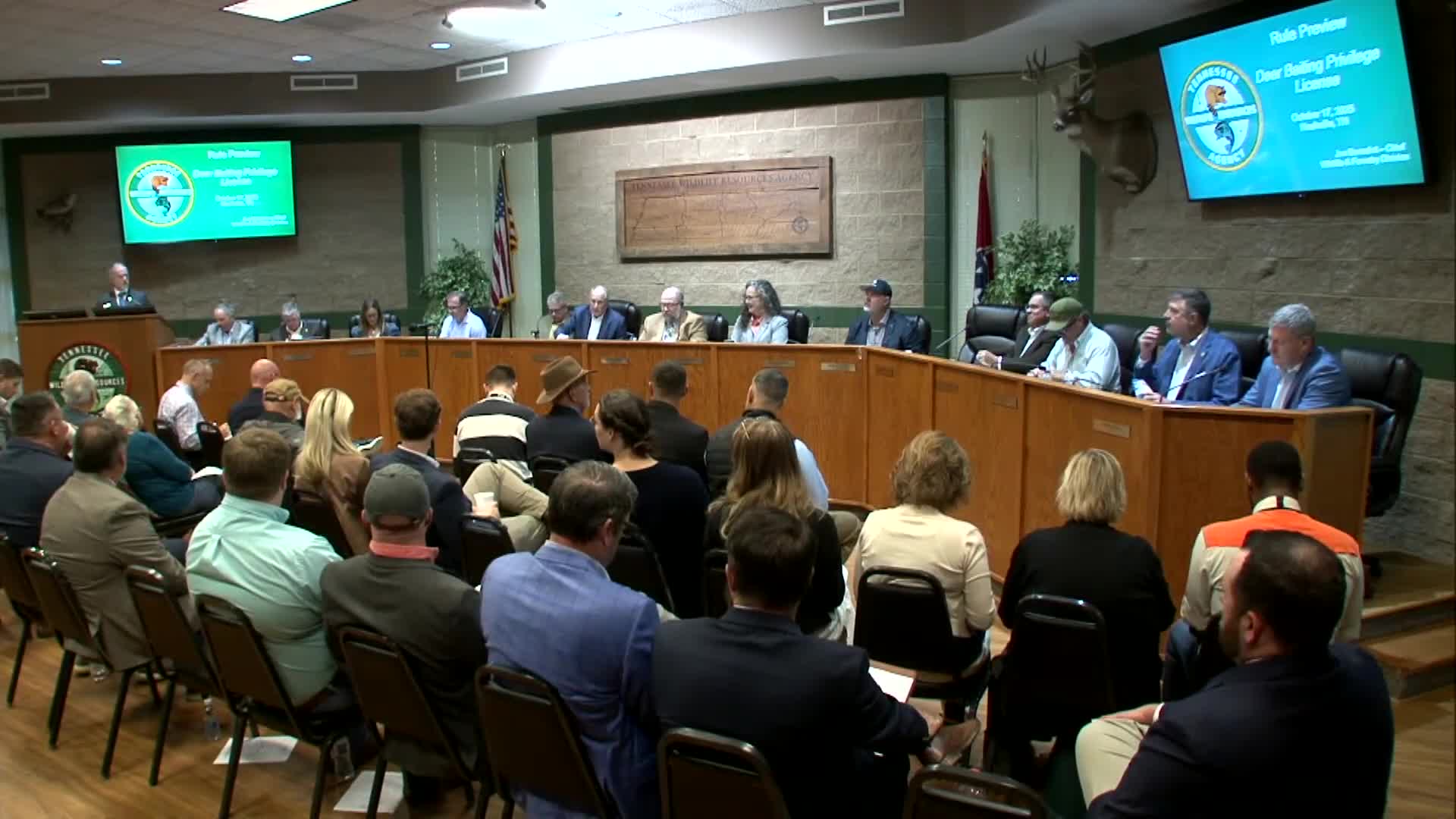TWRA previews draft deer-baiting license, sets 5‑gallon limit and disease safeguards
Get AI-powered insights, summaries, and transcripts
Subscribe
Summary
Following legislative changes, TWRA outlined a draft rule to implement an individual deer‑baiting license (resident $50, nonresident $100), including definitions of acceptable bait, a 5‑gallon/25‑pound per‑site per‑24‑hour limit, spacing rules and prohibitions inside chronic wasting disease (CWD) management zones.
The Tennessee Wildlife Resources Agency on Wednesday presented a draft rule to implement a new deer‑baiting privilege created by recent legislation. TWRA staff said the statutory change allows licensed hunters to hunt deer over bait on private or leased land only and directed the agency to adopt rules defining bait, amounts, spacing and other conditions.
“This is a presentation about a draft rule, for the deer baiting privilege,” Joe Benedict, who presented the draft, told commissioners. Benedict said the statute (TCA 70‑4‑113 was cited in the meeting) establishes license fees at $50 for residents and $100 for nonresidents and makes the license an individual annual authorization, not a site permit.
TWRA staff said the draft rule’s key provisions include: bait composed of natural whole grains or fruits (corn, wheat, apples) or commercial deer‑specific products; processed human foods generally excluded; bait must be scattered rather than piled and trough or gravity feeders used as bait sites are prohibited; a maximum of 5 gallons (about 25 pounds) of bait may be placed at a single site during any 24‑hour period; spacing guidance intended to be roughly one bait site per five acres or about 500 yards between sites for larger properties; and one bait site allowed for parcels under five acres.
Benedict and staff emphasized disease‑control measures. The draft would prohibit baiting within the agency’s CWD management zone and in any county that becomes CWD‑positive; it also would allow the agency to suspend an individual bait privilege where bait presence creates a public safety concern (for example, bear conflicts). Benedict discussed concerns about aflatoxin and other fungal growth where concentrated bait is left on the ground and said the 24‑hour limit helps reduce that risk.
Commissioners raised several questions about fairness, enforcement and unintended consequences. Commissioner Ford Little asked whether the rule could prevent shooting a deer with its head down at a feeder, calling such a shot unfair; Benedict said the agency would review other states’ language and enforcement approaches. Commissioner Monty Blue and others urged TWRA to consider an objective threshold before banning bait across broad geographies, arguing that excluding all western Tennessee counties because of a few positives might be overly broad.
TWRA framed hunters’ license exemptions narrowly: the baiting license would not be superseded by normal agricultural practices or sporting exemptions (so a baiting permit would still be required for hunters using bait under the new law). Benedict said the rule will be considered at the commission’s December meeting in Chattanooga and that a public comment period is open through Nov. 14.
Ending: The agency framed the rule as a compromise between the legislature’s allowance for baiting and continued disease‑control responsibilities; staff invited written comment through Nov. 14 and said it will return with a proposed rule and potential refinements on spacing, hunting‑over‑feed definitions and enforcement procedures.
